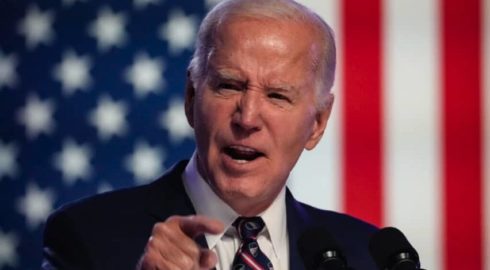Biden administration is launching a series of initiatives aimed at increasing the supply of affordable housing. Treasury Secretary Janet Yellen is set to unveil these measures on Monday, emphasizing the urgent need to tackle the housing supply shortfall that has plagued the market for years. According to Yellen’s prepared remarks, this deficit in housing availability has significantly contributed to the current affordability crisis, making it increasingly difficult for many Americans to secure affordable homes.
The Treasury Department’s announcement highlights various strategies to enhance existing programs and introduce new ones. These initiatives include increasing tax incentives and leveraging fiscal recovery programs to bolster affordable housing efforts. One of the standout measures is the creation of a new program that will allocate an additional $100 million over the next three years to support funding for affordable housing projects. This move is expected to provide much-needed relief to low-income families and address the widening gap between housing demand and supply.
Legislative and Local Efforts towards Biden administration initiative
Secretary Yellen will also advocate for broader legislative and local government actions to support these federal initiatives. She plans to urge Congress to pass bipartisan legislation aimed at expanding the Low-Income Housing Tax Credit, a critical tool for financing affordable housing development. This tax credit has been instrumental in incentivizing private investment in affordable housing, and its expansion is seen as vital for scaling up efforts to meet the housing needs of low- and moderate-income families.
In addition to federal legislative efforts, Yellen will call on state and local officials to eliminate excessive legal barriers that hinder housing development. These barriers often include restrictive zoning laws and lengthy permitting processes that can delay or altogether prevent the construction of new housing. By addressing these local impediments, the administration hopes to facilitate a more conducive environment for building affordable housing and thereby alleviate some of the pressures on the housing market.
Market Context and Economic Implications
The announcement of these initiatives by Biden administration comes at a time when home prices have reached unprecedented levels. In May, the median price of an existing home sold hit a record high of $419,300, representing nearly a 6 percent increase from the previous year. This surge in home prices marks the largest gain since October 2022, underscoring the severity of the affordability issue facing many potential homebuyers.
A recent analysis by the Treasury Department reveals that housing demand has consistently outpaced supply since 2000, driven by changing demographics and other market dynamics. Compounding the problem, the Federal Reserve has maintained interest rates at a 23-year high of 5.25 percent to 5.5 percent, further exacerbating the affordability crunch. These economic conditions highlight the critical need for the Biden administration’s proposed measures, which aim to not only increase the housing supply but also make homeownership and renting more accessible for Americans across various income levels.
By taking these comprehensive steps, the Biden administration seeks to address one of the most pressing economic challenges of our time. The success of these initiatives will depend on coordinated efforts across federal, state, and local levels, as well as the active participation of private sector stakeholders.
Political Implications and Public Response
As the 2024 presidential election looms, housing costs remain a significant concern for the Biden administration. The president has been vocal about what he describes as “rent gouging” by corporate landlords, accusing them of keeping consumer rents high despite falling costs. This rhetoric has not gone unnoticed by the National Apartment Association (NAA), a major landlord lobby, which recently issued a statement condemning Biden’s stance.
The NAA’s statement emphasized the need for policymakers to depoliticize housing issues and take concrete action to address the affordability crisis. “Politics has no place in housing and it’s far past time for policymakers to act on housing,” the group asserted. This ongoing debate underscores the complexities of the housing market and the challenges the administration faces in balancing economic policies with political strategies.
As the debate approaches, the effectiveness of Yellen’s new initiatives and the broader economic strategies of the Biden administration will be under intense scrutiny. Voters will be looking for tangible improvements in their everyday lives, particularly in terms of housing affordability and overall economic stability. The outcome of these efforts could play a pivotal role in shaping the political landscape leading up to the 2024 election.














